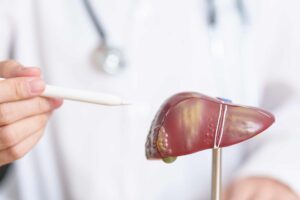On the 21st of June, second day of the 16th International Scientific Conference on Probiotics, Prebiotics, Gut Microbiota and Health – IPC2023 in Bratislava, a discussion on the definition of Postbiotics took place, gathering around the table five experts in the field: Wilbert Sybesma, Founder and Owner of Microbiome Solutions; Simone Guglielmetti, Associate Professor at the Università degli Studi di Milano; Eva Armengol, Scientific Manager at AB-BIOTICS; Gabriel Vinderola, last author of the ISAPP consensus statement; George Paraskevakos, Executive Director at International Probiotic Association.
During the session the audience had a strong role as well, with a high involvement and participation of all the attendees.
Overview on the topic
While probiotics have long played the starring role in microbiome modulation, science now suggests that postbiotics can have a significant role, as well.
The debate on the definition of the term postbiotics is open since the publication of the consensus statement by the International Scientific Association of Probiotics and Prebiotics. According to the document, postbiotics are “a preparation of inanimate microorganisms and/or their components that confers health benefit on the host.”
Contrarily with the goal of the publication, the consensus was not reached. For this reason, during the IPC 2023 the discussion panel on the probiotics shared thoughts and opinions on the status and future development of the definition.
During the discussion three levels of interest emerged: science and research, marketing and consumer communication, regulatory and government.
Science and research
From a scientific point of view, a focus was given to the inactivation of microbes, more specifically on “how they should be killed to have a postbiotic”. Different opinions emerged: according to Simone Guglielmetti, a postbiotic can be identified as such regardless of how the microbes were killed. On the other hand, Wilbert Sybesma pointed out that postbiotics killed with heat are more stable.
Related to this point, a common agreement was given to the need for stability of the postbiotic compound, which remains a challenge. From both research and marketing point of view, it is fundamental to respect all the conditions of stability to have quality control. Gabriel Vinderola emphasized that if the clinical trial proves that there are benefits it is ok, regardless of the technology used, you can standardize the process.
Another topic touched during the debate is the one on the fermentation medium, in connection to the origin of the mechanism of action of the compound, as well. On one hand, the current definition was considered broad enough to have different options:
- Keeping fermentation medium
- Without fermentation medium
- Portion of fermentation medium
On the other hand, it was said that if the fermentation medium plays no role in the benefit of the compound, it is possible to decide whether or not to leave it in the compound according to the production steps.
Marketing and government regulations
The discussion moved on to marketing and regulation with the question: what do we want to achieve? Among the objectives that have emerged is that consumers have benefits, with proven science, and that they know what they are receiving. All panelists agreed that ultimately what matters is the final product: Eva Armengol shared that, from a company point of view, the final point is the benefit for the consumer and what they will understand. Consumers are increasingly health-conscious and are more and more interested in the origin of the molecule they are taking. Some of the key points are: what is the product, how is it manufactured and what is the compound. Companies know how to produce and work with inactive microbes and can contribute to the definition of the guidelines. In addition, they can contribute to a reasonable number of categories that a consumer can understand. This is a baseline that might be useful to consider when defining Postbiotics.
The session left room for an open discussion on the positive improvement of the definition: too wide or too narrow? What emerged was that if you want to communicate accurately to different targets, you need to define names, thus, taxonomy is crucial. The current definition of postbiotics is difficult to accept by regulations, while that of probiotics and prebiotics has already been accepted. It is important for companies to establish criteria for communicating with authorities and subsequently with customers. George Paraskevakos therefore suggested that a framework should also be created for governments taking a step forward in improving the definition.
To learn more about postbiotics, click here.











